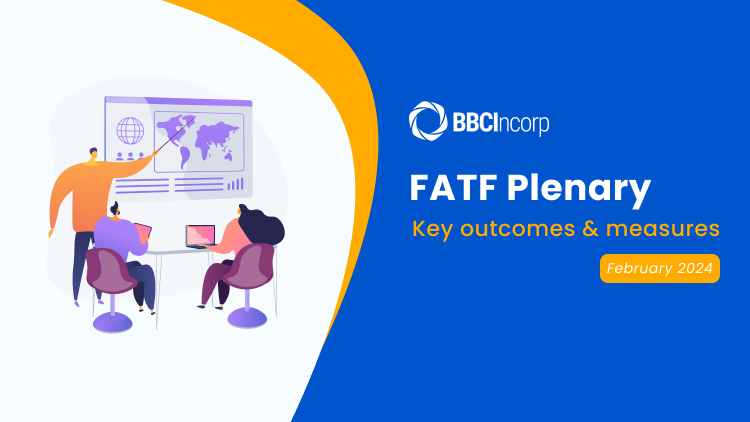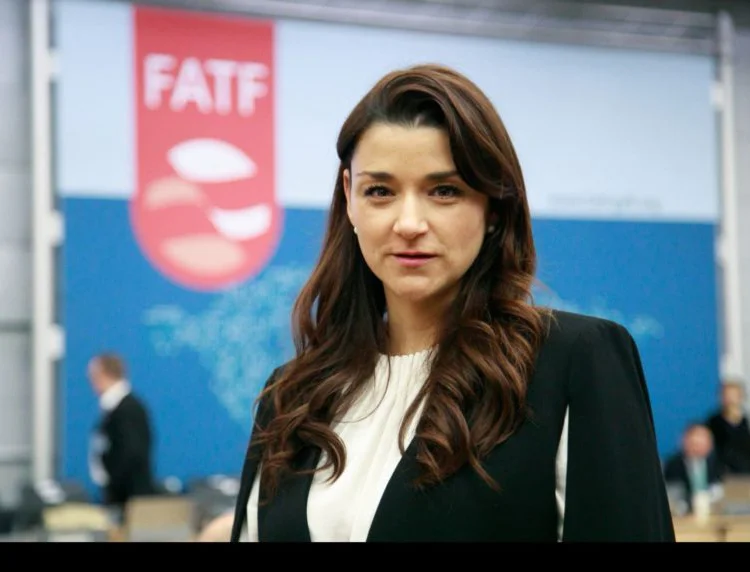
Table of Contents
Redefining the Grey List: Jurisdictions under increased monitoring
During the Plenary, the FATF updated its Grey List, which highlights nations with deficiencies in Anti-money Laundering and Combating The Financing of Terrorism (AML/CFT) policies.
Some countries were removed, showing their substantial progress in compliance. However, the list also added two new jurisdictions that require increased monitoring and immediate action to improve their AML/CFT measures.
- Two new additions to the grey list: Kenya and Namibia.
- Removal from the grey list: Barbados, Gibraltar, Uganda, and the UAE.
The FATF emphasized that these decisions were based on a thorough evaluation of each country’s progress in implementing AML/CFT measures and their level of cooperation with international efforts to combat financial crime.
Strategic initiatives for the road ahead
The FATF set forth strategic initiatives that will become a blueprint for its operations over the next biennium. Each of these pillars reflects a critical area in financial governance that requires global attention and concerted action.
Improving transparency in beneficial ownership
The Plenary provides measures to enhance transparency in beneficial ownership of legal entities (Recommendation 24) and legal arrangements (Recommendation 25).
Countries should take action to prevent the misuse of legal entities and arrangements for criminal purposes by:
- Evaluating risks linked to legal persons and arrangements;
- Increasing transparency of legal persons and arrangements; and
- Ensuring timely access to accurate and current ownership details for competent authorities.
Enhancing virtual asset regulations through digital transformation
The FATF Plenary highlighted the importance of digital transformation to address AML/CFT risks in virtual assets. It also stressed the significance of implementing FATF Recommendation 15 (R.15) and the Interpretive Note (INR.15), especially regarding virtual assets and virtual asset service providers (VASPs).
Recommendation 15 sets out key requirements for countries and VASPs, including:
- Assessing and managing risks linked to virtual asset activities;
- Licensing or registering service providers;
- Supervising VASPs nationally;
- Imposing sanctions for AML/CFT rule violations and enhancing global cooperation.
Despite this, there are inconsistencies in the global adoption of R.15 by February 2024. FATF calls for swift action to address technical challenges and resolve existing issues.
Increasing payment transparency
The FATF is looking into updating Recommendation 16 and its Interpretive Note (INR.16) on payment transparency. The goal is to speed up cross-border payments, lower costs, improve transparency, and promote inclusivity while ensuring safety. These changes are in line with the G20 Priority Action Plan. Before finalizing, the FATF is gathering feedback from all stakeholders, especially those in the payments sector.
The proposed revisions, along with the policy intent for each key proposal, can be found in the explanatory memorandum.
Protecting Non-Profit Organizations (NPOs)
The FATF updated Recommendation 8 and its Interpretive Note to safeguard NPOs from terrorist financing abuse by implementing strengthened measures based on risk assessment.
Key updates include:
- Countries must regularly identify organizations falling under the FATF’s NPO definition and evaluate the terrorist financing risks they face;
- Countries must implement targeted, proportionate, and risk-based measures to address identified terrorist financing risks;
- Countries should consider how measures may affect legitimate NPO activities.
You can access the full outcomes of the meeting on the FATF website.
The appointment of the next FATF Presidency
The FATF’s plenary decided to appoint Ms. Elisa de Anda Madrazo of Mexico as the next President of the FATF for the 2024-2026 term. Her presidency heralds a new chapter in FATF’s leadership that promises to continue the tradition of rigorous oversight and progressive policymaking.

Image source: AML Intelligence
In conclusion, the FATF Plenary February 2024 was a resounding success, serving as a testament to global resolve in combating financial crime. The outlined initiatives will redefine the cross-border financial landscape, underpinning the integrity and resilience of our economic systems.
Businesses, investors, and compliance officers must now align with these developments, not just to meet regulatory requirements but to proactively contribute to a safe and ethical financial network.
If you have any queries or require further information on the outcomes of the FATF Plenary, feel free to contact our dedicated support team via service@bbcincorp.com. We will be more than happy to assist you!
Disclaimer: While BBCIncorp strives to make the information on this website as timely and accurate as possible, the information itself is for reference purposes only. You should not substitute the information provided in this article for competent legal advice. Feel free to contact BBCIncorp’s customer services for advice on your specific cases.
Industry News & Insights
Get helpful tips and info from our newsletter!
Stay in the know and be empowered with our strategic how-tos, resources, and guidelines.





